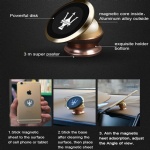From: Published:2014/3/28 11:44:28
It was the eagerly awaited meeting of the world's two most important first ladies.
But, according to the Chinese, there was a clear winner when Michelle Obama met her counterpart Peng Liyuan on Friday for the first time in Beijing.
"Our first lady is so graceful and elegant, leaving Michelle far behind," said one critic. "We have won this time," remarked another. "Ours is more refined and eye-catching," said a third.
There was praise for Mrs Peng's belted suit, with flashes of crimson at her neckline to match her red earrings and clutch bag, but some questioned whether her high heels were sensible enough for the cobbles of the Forbidden City. Without them, Mrs Obama would have towered over her. Mrs Obama won plaudits, however, for gamely embracing three of China's favourite hobbies: ping-pong, calligraphy and robot building.
The two first ladies began their day together at Beijing Normal School, an elite secondary school currently hosting 30 American exchange students, each paying £30,000 ($54,000) for their year abroad.
Visiting a robotics class, Mrs Obama was introduced to a robot in the shape of a snowflake that promptly became snarled in an obstacle course.
At the next desk, a cheeky pupil asked Mrs Obama if she wanted to try out his "bad boy" robot, that was "really naughty". She passed the controls to her daughter Malia.
Mrs Obama's trip represents a new approach in Washington's efforts to charm Beijing: a first ladies' club. Partly, it was a slightly stiff apology for the snub last year when Mrs Obama failed to show up for a meeting at Sunnylands, California, between Xi Jinping, Mrs Peng and her husband.
At other moments, it was more like a family holiday dressed as a diplomatic mission. One photograph showed Mrs Obama, her teenage daughters and her 76-year-old mother surrounding Mrs Peng. For China it was also an experiment. No politician's wife has ever hosted a visiting dignitary. While Mrs Peng has won praise for her presence by Mr Xi's side on his overseas trips, she does not have a high political profile at home.
As she rigidly picked up a brush to paint a scroll for Mrs Obama, Mrs Peng, a star singer who has performed before huge audiences across China, betrayed a hint of stage fright. "I am somewhat nervous too," she said as she wrote.
China remains unsure about the role of the first lady. "The last high profile politician's wife we had was Madame Mao," remarked one local government official before Mrs Obama's visit. "And that did not turn out so well."
Jiang Qing, Chairman Mao's fourth wife, was executed for her crimes during the Cultural Revolution.
Both Mrs Obama and Mrs Peng steered clear of politics and barely spoke during their tour of the school, according to the reporters present. "The US finds it hard to accept the communism and nationalism of China, but can easily accept Chinese food, calligraphy and other culture," said Shen Dingli, the head of the US Research Centre at Fudan University. "So after they have spent time together, eaten together and watched a show together, they will feel closer together and that may help the political process."
He added that the presence of the Obama girls and their grandmother would show the Chinese public that even America's first family is "normal" and not "iron-fisted" as some Chinese believe. "The trip will have an imperceptible, gentle, mollifying effect," he said.
The image of the Obamas as two hard-working parents who delegate child care duties to granny would play well with the Chinese, the White House predicted in advance, aware of how many Chinese families were forced to do the same.
"Our first lady is so graceful and elegant, leaving Michelle far behind," said one critic. "We have won this time," remarked another. "Ours is more refined and eye-catching," said a third.
There was praise for Mrs Peng's belted suit, with flashes of crimson at her neckline to match her red earrings and clutch bag, but some questioned whether her high heels were sensible enough for the cobbles of the Forbidden City. Without them, Mrs Obama would have towered over her. Mrs Obama won plaudits, however, for gamely embracing three of China's favourite hobbies: ping-pong, calligraphy and robot building.
The two first ladies began their day together at Beijing Normal School, an elite secondary school currently hosting 30 American exchange students, each paying £30,000 ($54,000) for their year abroad.
Visiting a robotics class, Mrs Obama was introduced to a robot in the shape of a snowflake that promptly became snarled in an obstacle course.
At the next desk, a cheeky pupil asked Mrs Obama if she wanted to try out his "bad boy" robot, that was "really naughty". She passed the controls to her daughter Malia.
Mrs Obama's trip represents a new approach in Washington's efforts to charm Beijing: a first ladies' club. Partly, it was a slightly stiff apology for the snub last year when Mrs Obama failed to show up for a meeting at Sunnylands, California, between Xi Jinping, Mrs Peng and her husband.
At other moments, it was more like a family holiday dressed as a diplomatic mission. One photograph showed Mrs Obama, her teenage daughters and her 76-year-old mother surrounding Mrs Peng. For China it was also an experiment. No politician's wife has ever hosted a visiting dignitary. While Mrs Peng has won praise for her presence by Mr Xi's side on his overseas trips, she does not have a high political profile at home.
As she rigidly picked up a brush to paint a scroll for Mrs Obama, Mrs Peng, a star singer who has performed before huge audiences across China, betrayed a hint of stage fright. "I am somewhat nervous too," she said as she wrote.
China remains unsure about the role of the first lady. "The last high profile politician's wife we had was Madame Mao," remarked one local government official before Mrs Obama's visit. "And that did not turn out so well."
Jiang Qing, Chairman Mao's fourth wife, was executed for her crimes during the Cultural Revolution.
Both Mrs Obama and Mrs Peng steered clear of politics and barely spoke during their tour of the school, according to the reporters present. "The US finds it hard to accept the communism and nationalism of China, but can easily accept Chinese food, calligraphy and other culture," said Shen Dingli, the head of the US Research Centre at Fudan University. "So after they have spent time together, eaten together and watched a show together, they will feel closer together and that may help the political process."
He added that the presence of the Obama girls and their grandmother would show the Chinese public that even America's first family is "normal" and not "iron-fisted" as some Chinese believe. "The trip will have an imperceptible, gentle, mollifying effect," he said.
The image of the Obamas as two hard-working parents who delegate child care duties to granny would play well with the Chinese, the White House predicted in advance, aware of how many Chinese families were forced to do the same.



